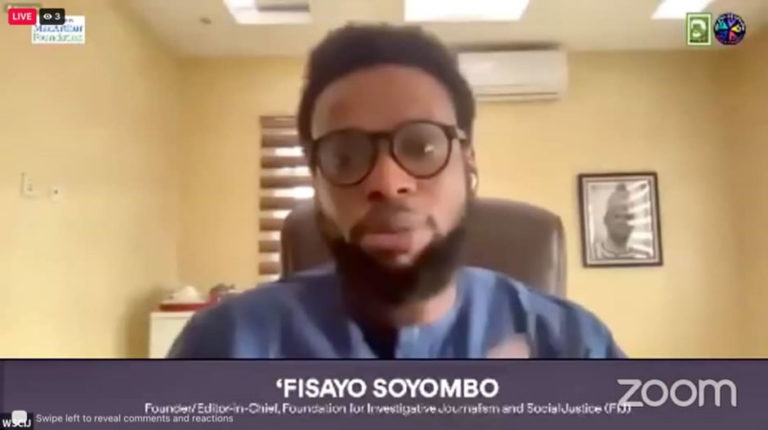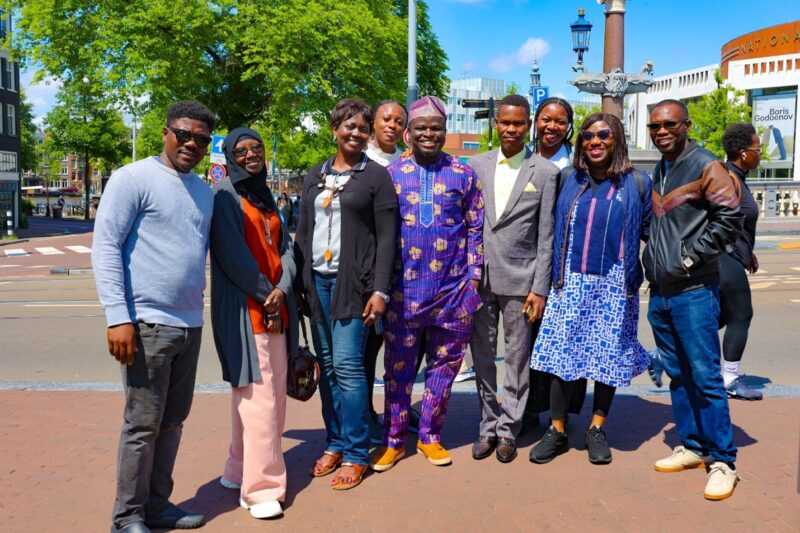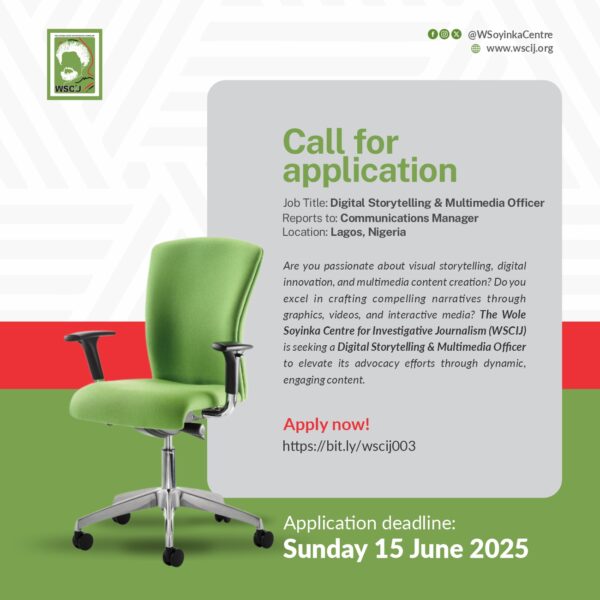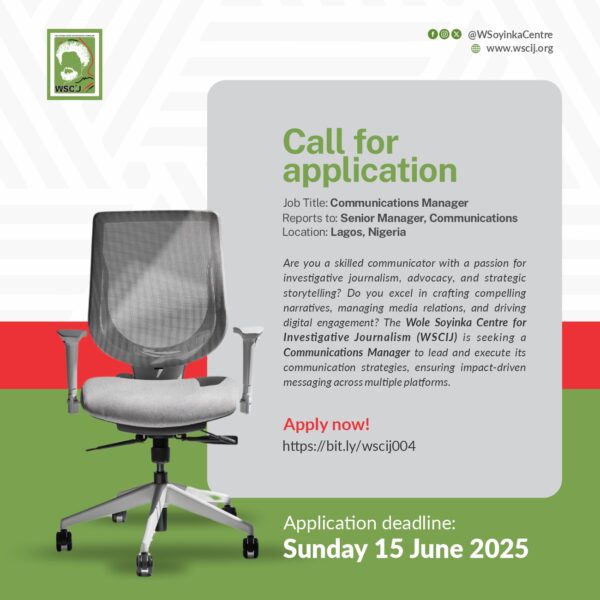Fisayo Soyombo, Editor-in-Chief of Foundation for Investigative Journalism and Social Justice (FIJ), has charged investigative journalists to stay above board in discharging their duties as the watchdog of society to remain relevant within the media space. He made this call at the 14th Wole Soyinka Centre Media Lecture Series held Wednesday 13 July 2022.
Soyombo advised that investigative journalists must maintain credibility, balance, and neutrality in its quest to hold subnational governments accountable and spotlight corruption cases to drive good governance and development.
The three-time winner of the Wole Soyinka Award for Investigative Reporting advised that there should be no loopholes in an investigative story. “You can have opinions, but if you are putting out work, then it should be foolproof so that no one can pick any hole in it.”, he said.
Apart from churning out credible stories, he said an investigative journalist must strike a balance by hearing from all parties. “You have to reach out to the other side. It is clear that if I allowed you to explain despite my findings you cannot say that I am working for an international body or your political opponents”, he said.
Frolicking with the subject matter was frowned at by Soyombo who said it is against the ethics of what investigative journalism stands for. He advised journalists to be vigilant to avoid being exploited and turned into a tool in fighting personal battles or landing a severe blow on rival political opponents.
When quizzed about the role of subnational media in engendering good governance and accountability, Soyombo blamed people’s ignorance of their rights as it concerns subnational issues for the state and local government officials getting away with so many atrocities. “It is not just that the media is not covering subnational issues well enough. It is so bad that people do not even know what to do or whom to turn to when things are going wrong.”, he said.








